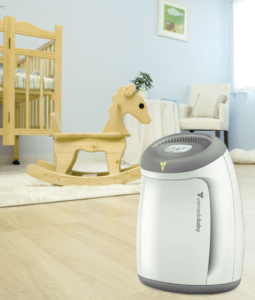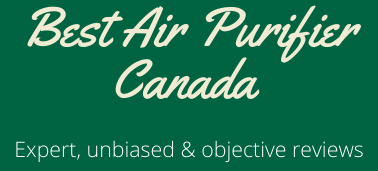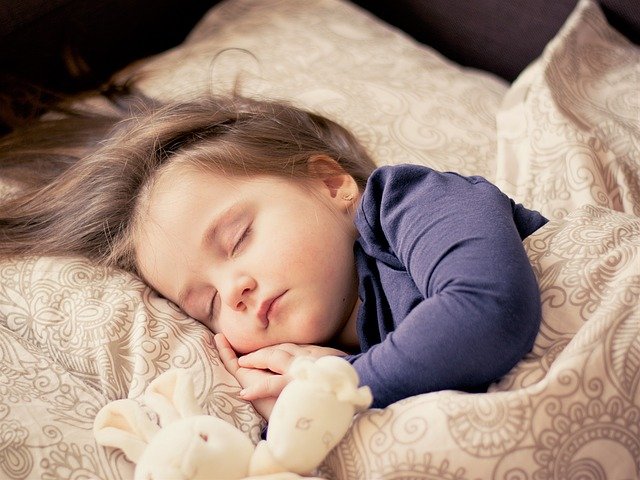The best air purifiers filter out airborne particles like allergens from the air, leaving us with healthy breathing air. Babies are very sensitive, and the smallest airborne particles in their space could lead to infections because their immunity is not fully developed. So, are air purifiers safe for babies?
In today’s article, we answer this question in detail.
Air purifiers are necessary for the baby’s nursery but not every air purifier is safe. With their immunity and lungs still in the development stage, babies remain sensitive to most particles in the air. Therefore, ensure that the air around the baby is clean and healthy by using the right air purifier for baby rooms.
FYI, the concentration of pollutants in indoor air is five times higher than in outdoor air. This poor quality air results in a stuffy nose, coughing, watery eyes, throat infections, and can trigger asthma attacks and allergic reactions.
Therefore, every parent must invest in a good air purifier to protect the little one from all the above.
What Is the Best Air Purifier for Baby Rooms?
Air purifiers are available in different styles, sizes and use various technologies to filter air. This should tell you that choosing the right air purifier for the baby might be a daunting task.
If you are a new parent or looking to upgrade the air purifier in your baby’s room, consider the factors below to choose the right one.
HEPA and Activated Carbon Filters
HEPA filters remove 99.97% airborne particles 0.3 microns or larger. These include dust, dust mites, pollen, pet dander, and mold spores among other pollutants.
On the other hand, activated carbon filters trap smaller-sized pollutants like smoke, odors, Volatile Organic Compounds (VOCs), and chemicals which the HEPA filters cannot absorb.
Some air purifiers have both HEPA and activated carbon filters. So, buying such for the baby assures you total protection from airborne particles and chemicals.
Noise level
Apart from checking the filter that is installed in your preferred option, consider the noise range. Noise is measured in decibels (dB or dBA). The higher the value, the noisier the air purifier is.
Usually, manufacturers specify the noise level from the lowest fan setting to the highest. While most air purifiers are relatively quiet at low fan speeds, some are super quiet and the best for babies.
Therefore, look out for baby-friendly air purifiers. You’ll see terms such as ultra-quiet, but be sure to compare the dBs or dBAs as they appear on the user manual or product description. Some like the Vornadobaby Purio Nursery Air Purifier also come with a soothing glow that helps the baby sleep better.

Cost of Filter Replacement
It is essential to understand that filters get clogged with pollutants after some time. To maintain the effectiveness of the air purifier, you must replace the filters. The replacement period depends on the manufacturer’s guide, usage, and the number of pollutants in your space.
Therefore, factor in the cost of filter replacement when buying an air purifier. Also, consider buying more expensive filters because they are more effective and may last longer.
Energy Star-Certified
Air purifiers are electrical appliances meaning that they will add up to the energy bill. To help you cut on the cost of running an air purifier, choose ENERGY STAR-certified air purifiers by Environmental Protection Agency (EPA).
They might be more expensive than regular air purifiers but will save you on energy bills in the long run.
Consider the Size
Air purifiers come in different sizes and are effective for different-sized rooms. Therefore, consider the exact size of the nursery before buying an air purifier for efficiency. For example, if the room is 500 square feet, an air purifier for a 300 square feet room will be ineffective.
Avoid Ionizing Air Purifiers
Ionizing air purifiers use ionizers to attract the air’s pollutants, which ends up in the creation of ozone. When breathed in for an extended period, ozone is harmful to the lungs and the respiratory system as a whole.
How to Reduce Indoor Air Pollution
Below are simple practices that will help you reduce air pollution in your house:
- Do not smoke in the house.
- Regularly clean carpets and rugs in the babies room because they attract and store dust and other allergens
- Replace cleaning chemicals with natural cleaning products like baking soda and lemon juice.
- Mop and vacuum the baby’s room regularly
What causes air pollution in homes? Check out this informative YouTube video by Philips for more:
Conclusion
Indoor air is highly polluted making it necessary to have an air purifier in the baby’s room. To maintain the air purifier’s effectiveness, ensure to change the filters as recommended by the manufacturer.
Also, you must find an air purifier that will work in silence and not disturb the baby’s sleep. So, yes air purifiers are safe for babies, but you must buy the right one. One that is silent but effective, and does not emit ozone that can harm the baby in the long run.

